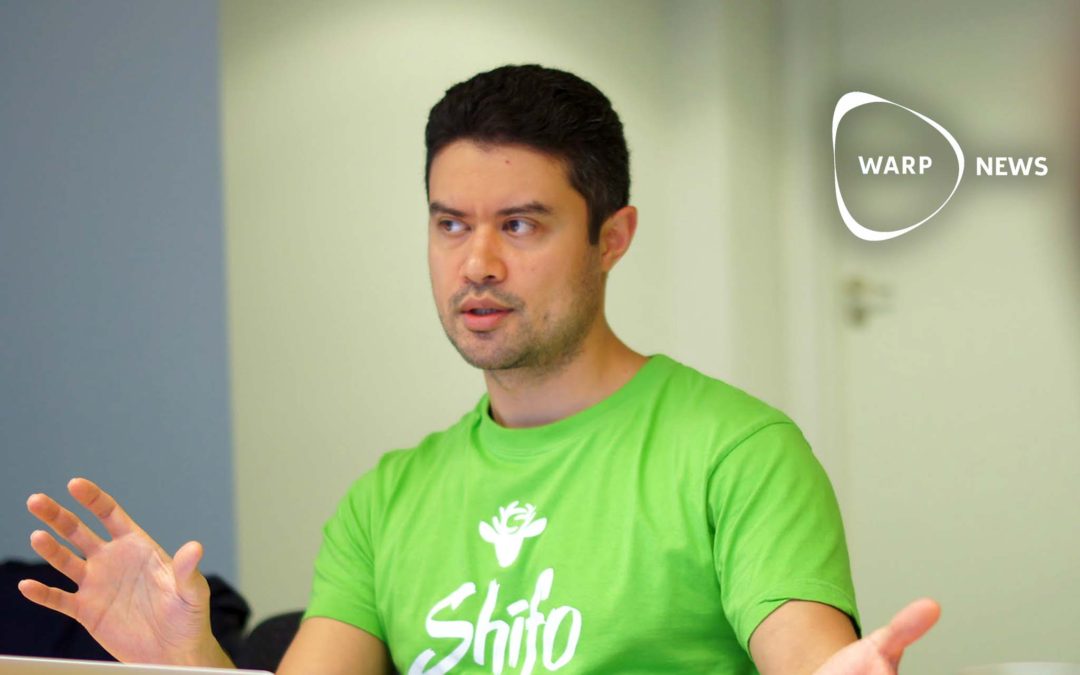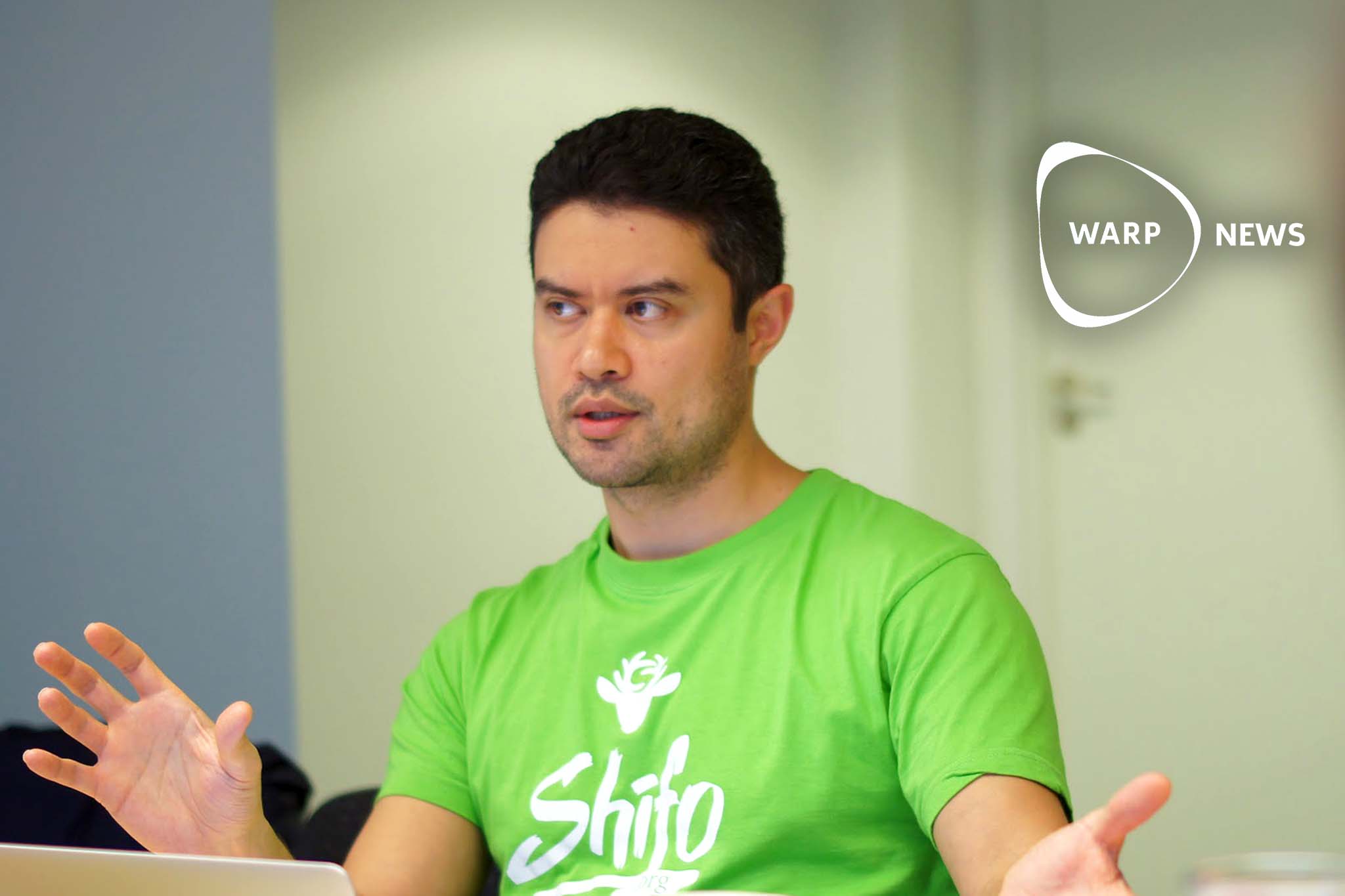
Rustam Nabiev was born into a medical family in Tajikistan in 1980. After the collapse of the Soviet Union, a civil war broke out in the country, and Rustam's family was forced to leave their privileged life in the capital to flee to northern Tajikistan. The family has lived there for several years with the support of international humanitarian aid.
– I got to witness with my own eyes how relief shipments of food were sold in the market instead of relieving the hunger of the neediest, says Rustam Nabiev.
He started working early to help his parents. He sold scrap metal and washed cars.
– But I realized relatively immediately that the working method was too inefficient, so I organized other children and young people in my vicinity to expand the small business to include neighboring villages.
From Tajikistan to KTH, Rustam's interest in problem-solving and innovation eventually brought him to Sweden and the Royal Institute of Technology, KTH, where the work – seriously – started to create sustainable and equal health systems on a global level.
– As a child, I was very introverted. If I had a choice, I would rather sit by myself and read a book. However, the circumstances forced me to do something else. When I came to Sweden and KTH, I realized, in reality, the need to communicate and collaborate with other people, says Rustam Nabiev.
At KTH, Rustam's interest increasingly developed towards e-health and telemedicine. An early IT project – which would solve home surveillance for approximately 20,000 people with respiratory difficulties – aroused serious interest in creating better and more efficient healthcare and health care with innovation and digitalization.
At Karolinska University Hospital, Rustam then had the chance to work with e-health in a more global context. The question that accompanied him was: how can knowledge and experience from the Swedish healthcare system be helpful in the poor part of the world? Of course, his own experiences of growing up in Tajikistan remained in the back of his mind.
In 2009 came the ample opportunity when Rustam and other Swedish experts were invited to Uganda.
– This was, in many ways, an eye-opener for me. We had the opportunity to understand how digital solutions could strengthen the healthcare and health systems on the African continent. I stayed for a short time and studied all the constituent components of the care chain, from the daily challenges of healthcare professionals to decision-makers, need for information to make relevant decisions. The devil is in the details. If you want to succeed with a larger project involving both man and machine, you have to study every detail. It was probably one of the most crucial experiences I have had over the years.
Meanwhile, in Uganda, Rustam also realized the root of the problems in delivering functioning maternal and child health care. When he left Africa that time, he had decided that the next time he went there, he would bring a solution to the problem.
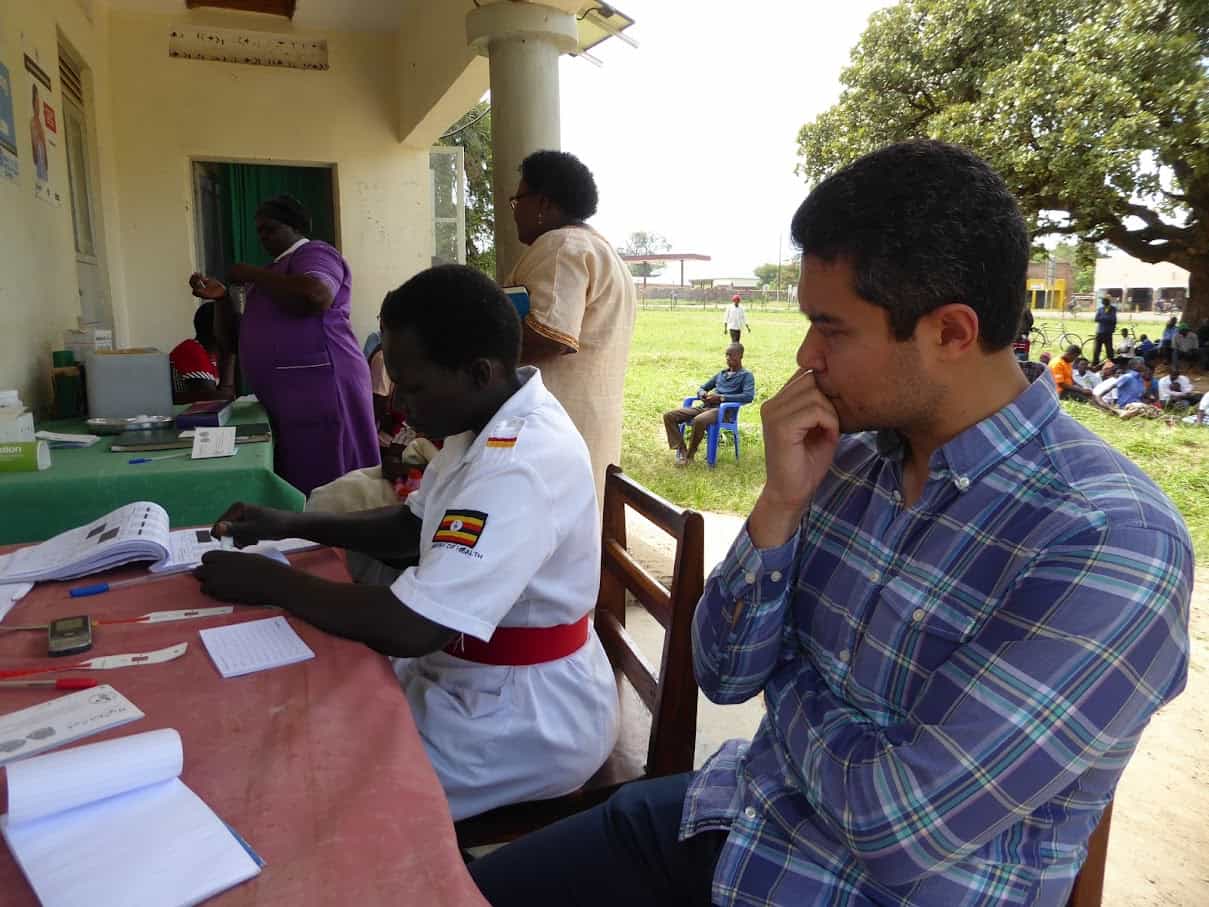
The work begins
Back in Stockholm, Rustam organized a team to develop the solution itself.
– The deeper we dug into the problem, the more complicated the challenges turned out to be. We developed and tested. Occasionally completely without financial compensation. The will to succeed was so powerful.
Rustam and his team developed a simple and cost-effective solution that replaces existing information systems in the care process. Because in the world's poorest countries, basic personal and health data at the primary care level are still handled analogously.
– In small health stations and health centers worldwide, you still write down your patient data in a logbook by hand. It's awkward. It takes time, and the opportunity to follow up and do better is not very significant.
Rustam and his team developed the solution for healthcare staff at local care units – often lacking electricity and internet connection – to be equipped with so-called brilliant paper forms. It is an advanced application, but one that is easy to use. It is a cheap and durable paper used the way paper has always been used, and you write on it with a pen.
– Thus, no transformative changes are required in the daily work and behavior of the care staff. If there is one thing I have learned over the years, the entry threshold when introducing something new must be low. Otherwise, nothing succeeds.
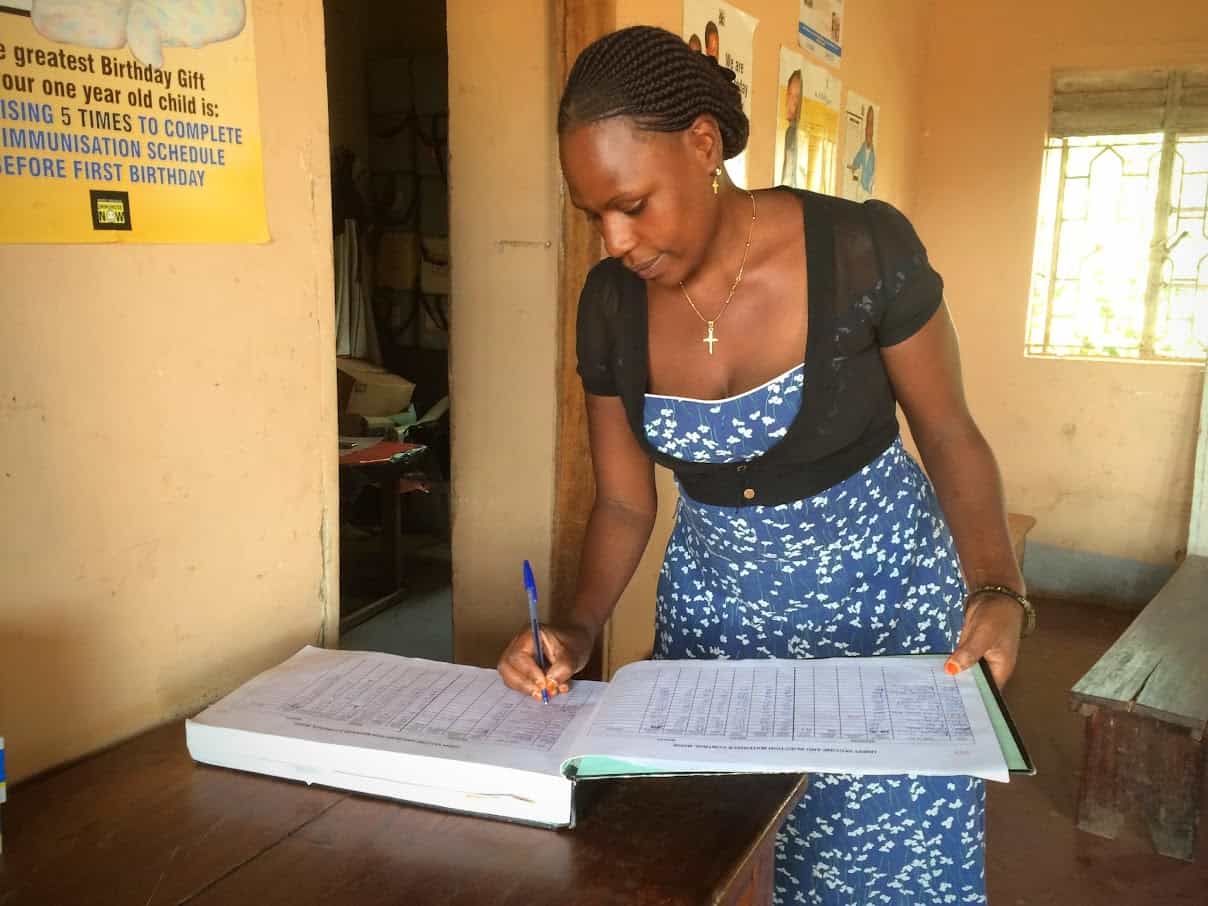
Once the papers are filled with patient data, they are forwarded to a scanning center that digitizes the handwritten information. The information is then uploaded to a server for processing.
– With the support of intelligent algorithms and machine learning, images and text are then handled in more than 150 different languages. AI clients manage pure inaccuracies and damage to documents so that the quality of the information is ultimately as high as 99 percent. Several systems and working methods merge into one. All information is gathered in one place. It is thus a hybrid method where you can combine the digital with the analog. The new with the old, and no information is lost along the way, says Rustam.
Simplicity and systematics
A prerequisite for building stable and sustainable systems is to have the correct data. Within a care system, you must know who has received which treatment. For the patient's sake and for the entire system and care chain to function, develop and improve. Follow-ups and evaluations require data. It must be possible to send money correctly within the system.
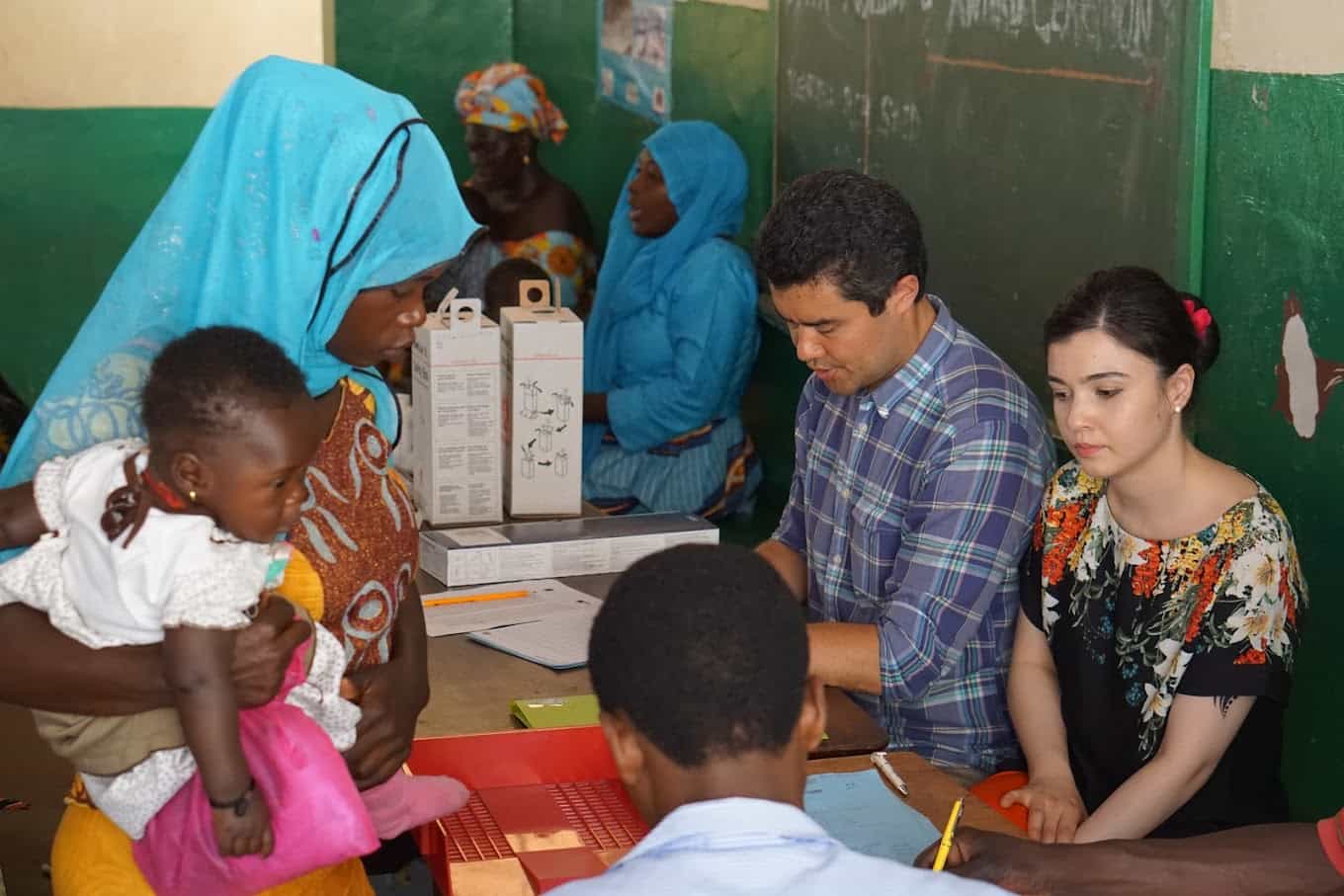
One of the many challenges in the poor part of the world is the lack of social security numbers and ID documents. Already in 2009, when he was in Uganda, Rustam saw the catastrophe in mothers not being able to connect with the right children, which is why the vital vaccination programs did not work.
– We, therefore, also offer a simple system with social security numbers. Suddenly, a plan emerges where the right person can get the proper treatment. Something that can then be scaled up from the local to the regional and national level. The potential is enormous. The correct data in the right place is perhaps more critical than ever. We often talk about society's surplus data, but this is not the case for everyone and everywhere. Sometimes – or even often – there is not even the most basic information about people and relationships. However, once the information has been collected and digitized, you can start working more long-term with your vital data. You can evaluate. Develop. Synergize. Connect data and collaborations locally, nationally, and internationally. And with that, move both knowledge and public health forward.
Along the way, Rustam has created the non-profit organization Shifo, with the vision that neither mothers nor their children will die or suffer from preventable diseases. Before launching their technology, and their way of working around the world, it is preceded by careful studies of the type of data required to achieve the best possible effect regarding efforts, evaluation, and development.
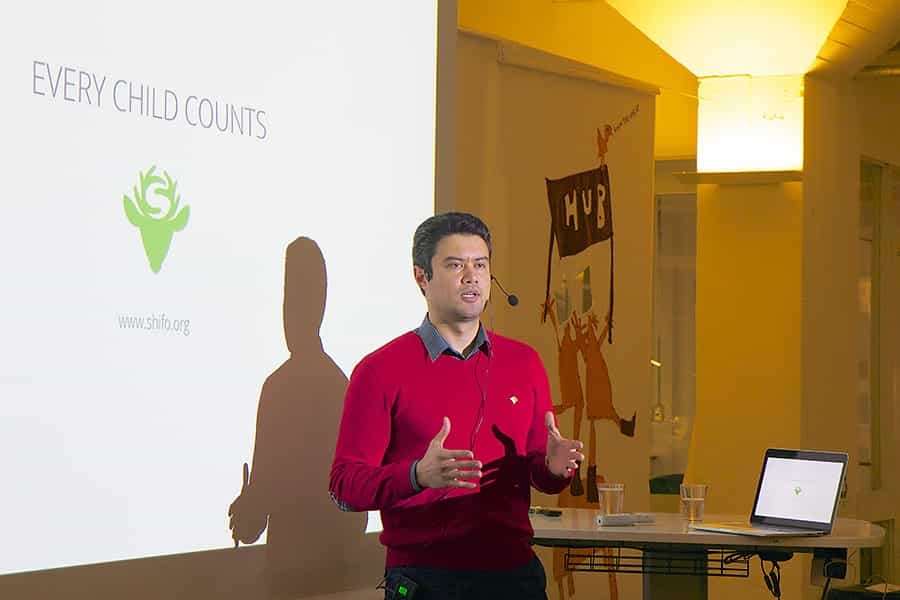
Unexpected problems
– Sometimes, however, it is not what you initially might think will get people to seek health care that works. An interesting example is from the Oromia region of Ethiopia. It was tough to get more women to apply to the local maternity and child care. Despite the efforts of the local care staff, the women did not find their way there. Until one day, when it was revealed how crucial the tradition is that the woman, immediately after giving birth, is served a special kind of porridge. So, when the minor maternity ward started offering porridge at the clinic, the women also came there. Suddenly, what had not worked before now worked, says Rustam Nabiev.
In Gambia, Shifo, led by Rustam, has gone from digitizing maternity and child care at the local level to establishing a national register where all the country's children have been registered and are thereby fully vaccinated.
– It has gone very well, and now the country's decision-makers want to expand the system. One idea is that all children in the country – with the help of the national register – can now also be offered schooling. Another idea is to gather the same information and register the adult population. This will ensure that all adults who need, for instance, HIV medication also receive it.
Security and privacy
To my question about how sensitive information and patient safety is handled – which is especially important when operating in repressive environments – Rustam answers that from the very beginning in Shifo's history, the handling has strictly complied with both EU GDPR legislation and the Swedish Patient Safety Act. Safety and reliability are essential for the organization.
– Evaluations show that when we digitize and streamline healthcare and its data and enable reporting and facilitating both upwards and downwards in the healthcare system, the administrative burden is significantly reduced. As much as 96 percent have been saved on the care units where Shifo has been with its solutions. In addition, up to 60 percent of the care staff's time is saved. Vital hours and minutes can be used for far more essential things.
From the beginning, Shifo's working methods have been bottom-up. They have started small, at the local level, and are working their way up towards a national level and national and sometimes even international coordination. It has proven to be both practical and stable. Investments in new technology and working methods are paid for by what you earn when you leave the old system. No new big budgets are needed to start and start working in a new way.
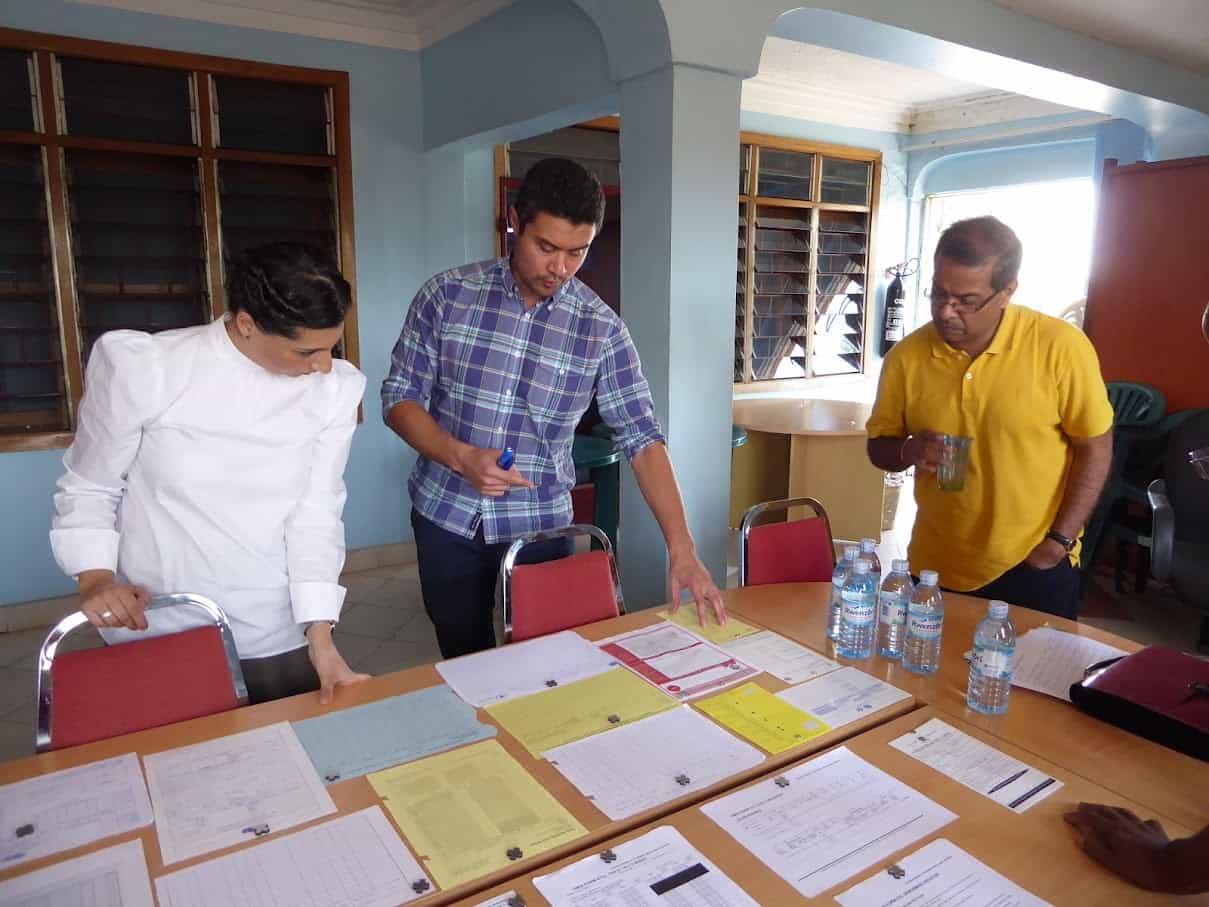
A long-term sustainability
However, Rustam is careful to point out that he and Shifo are only beginning a long-term and very purposeful work to develop the world's healthcare system.
– The work where we use Smart Paper Technology to streamline and develop healthcare has enormous potential, but it is still just one of several building blocks in much larger change work. I want to be a part of fundamentally changing the global healthcare systems. I want to contribute to better and safer compensation models in the world's health care system. I want people to benefit from Swedish experience in the field. Because when national and international money is pumped into a country's healthcare system, retaliation and indicators are required to ensure that the care has been implemented and met its goals. An indicator may be that a certain percentage of children in a healthcare area have been vaccinated. Otherwise, you get no money. And, to demonstrate that the goals have been met, reliable data and a great deal of transparency are required in the reporting systems. Something that, in tur,n can also help reduce corruption says Rustam Nabiev.
In place – in reality
Shifo tested the Smart Paper solution for the first time on-site in Uganda. Since then, the technology has been introduced to varying degrees – and for different reasons – in several countries such as the Gambia, Afghanistan, Haiti, Honduras, Tanzania, Kenya, and Zambia.
– These are countries with often harsh conditions and lacking or non-existent health and medical systems. The needs are enormous, and vital functions must be put in place quickly and be implemented yesterday. In Haiti and Honduras, our solution has helped create fusionallogistics in the distribution of medicines. Especially during the current pandemic.
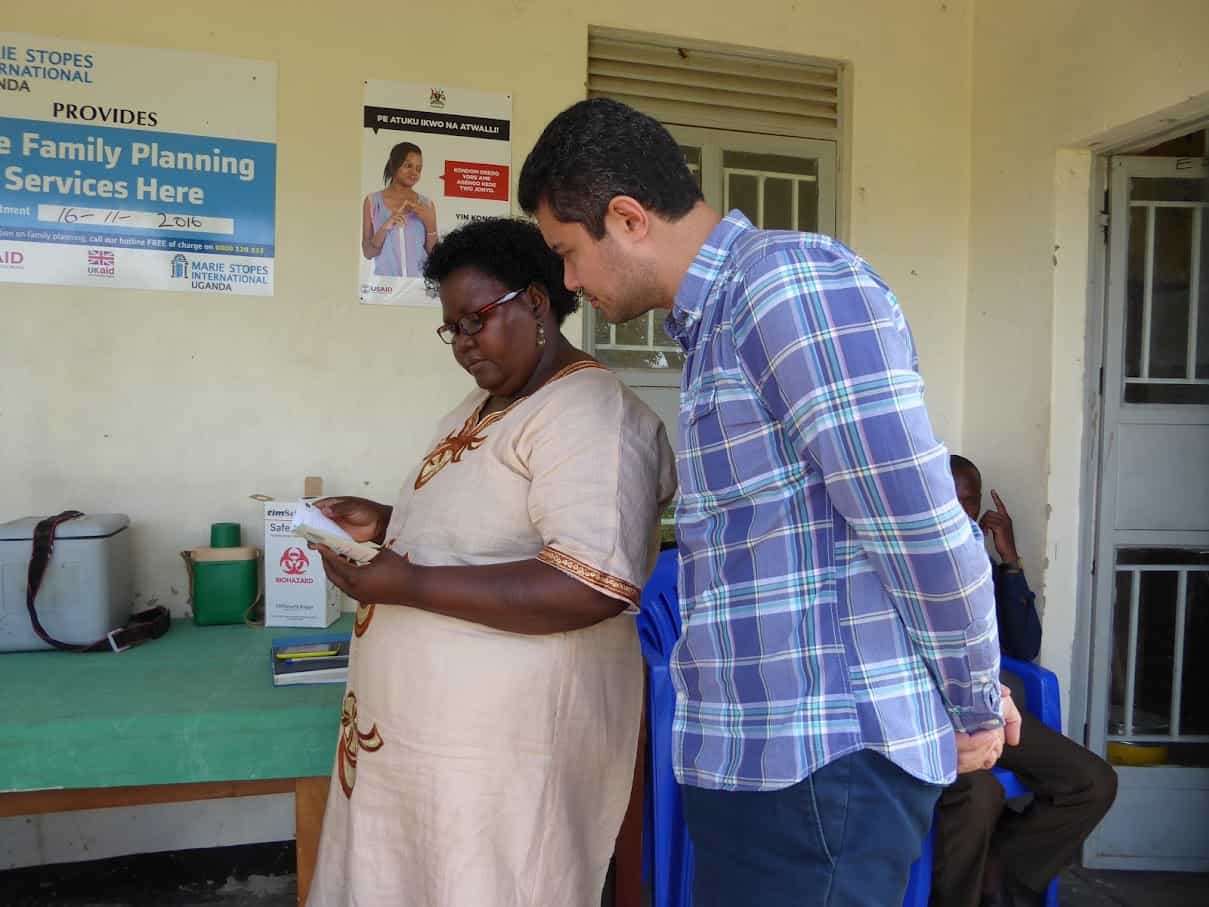
At his side, Rustam has a very committed group with a background in IT research, community development, and international development work. People in the form of employees, advisors, board members, and investors.
– When the business started, we worked for periods entirely without financing. However, we have always had a steadfast belief in technology and the ability to change. Gradually, both national and international support and capital have flowed in. Today we go arm-in-arm with international actors such as UNICEF, the WTO, and the GAVI Global Fund. The IKEA Foundation and iKare were also out early to support. First out was the Swedish Postcode Lottery.
Bo Göransson, former director-general of Sida and Sweden's ambassador to Kenya, is chairman of the board of Shifo and believes that what Rustam and his team are doing in developing countries is completely revolutionary.
Shifo and their Smart Paper Technology solution have made digitization efficient and flexible based on the conditions in each place. They produce data at the primary level – out in the field – that can then be used for follow-up and higher-up decisions in the healthcare system. Without good data, no good decisions. Without good decisions, no change, says Bo Göransson.
The way forward
Even though many of the world's countries are developing and modernizing at a furious pace, others are at the same time becoming poorer and more vulnerable. In some ways, the gaps are widening. This has become particularly obvious with the ongoing pandemic as the economy is strained. So, getting to grips with global health and health problems requires innovation, efficiency, genuine real insight and knowledge of how it works on a local level in everyday life.
When we ask Rustam about his determination and how he envisions the future, he answers:
– I am constantly on the lookout for the pieces of the puzzle that are missing. I chase problems and seek solutions. If I do not solve problems, I will die.
And, when asked if he ever felt hesitation and possibly even fear when his work took him recently to Afghanistan, he answers quickly and firmly:
– I want to do what I'm passionate about. I am not afraid. Honestly, if it came to it, I'd rather have a shorter life if necessary.
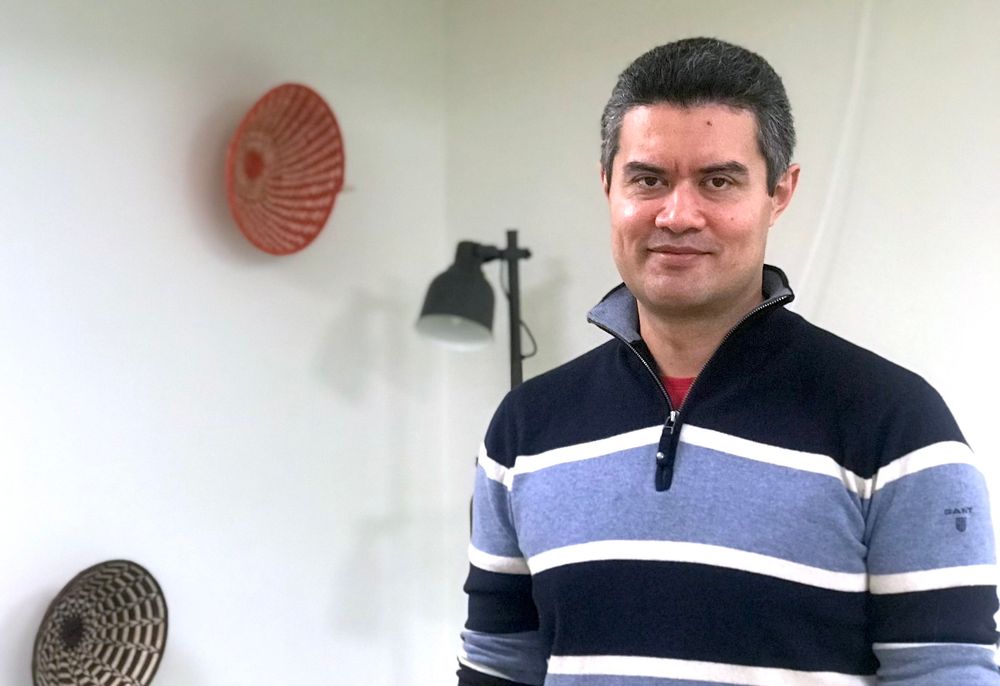
Rustam's work undoubtedly continues forward, and along the way, he is noticed and rewarded. In 2021, Rustam received the Royal Institute of Technology's "Innovation Award" with the motivation:
“The first recipient of the KTH Innovation Award is someone who embodies the spirit of KTH: working towards a brighter tomorrow. For taking on the enormous challenge that no mother or child should die or suffer from preventable diseases, and his creativity, grit, and courage in implementing the solution with the people who need it the most, the 2021 KTH Innovation Award goes to Rustam Nabiev, co-founder of the Shifo Foundation.”

